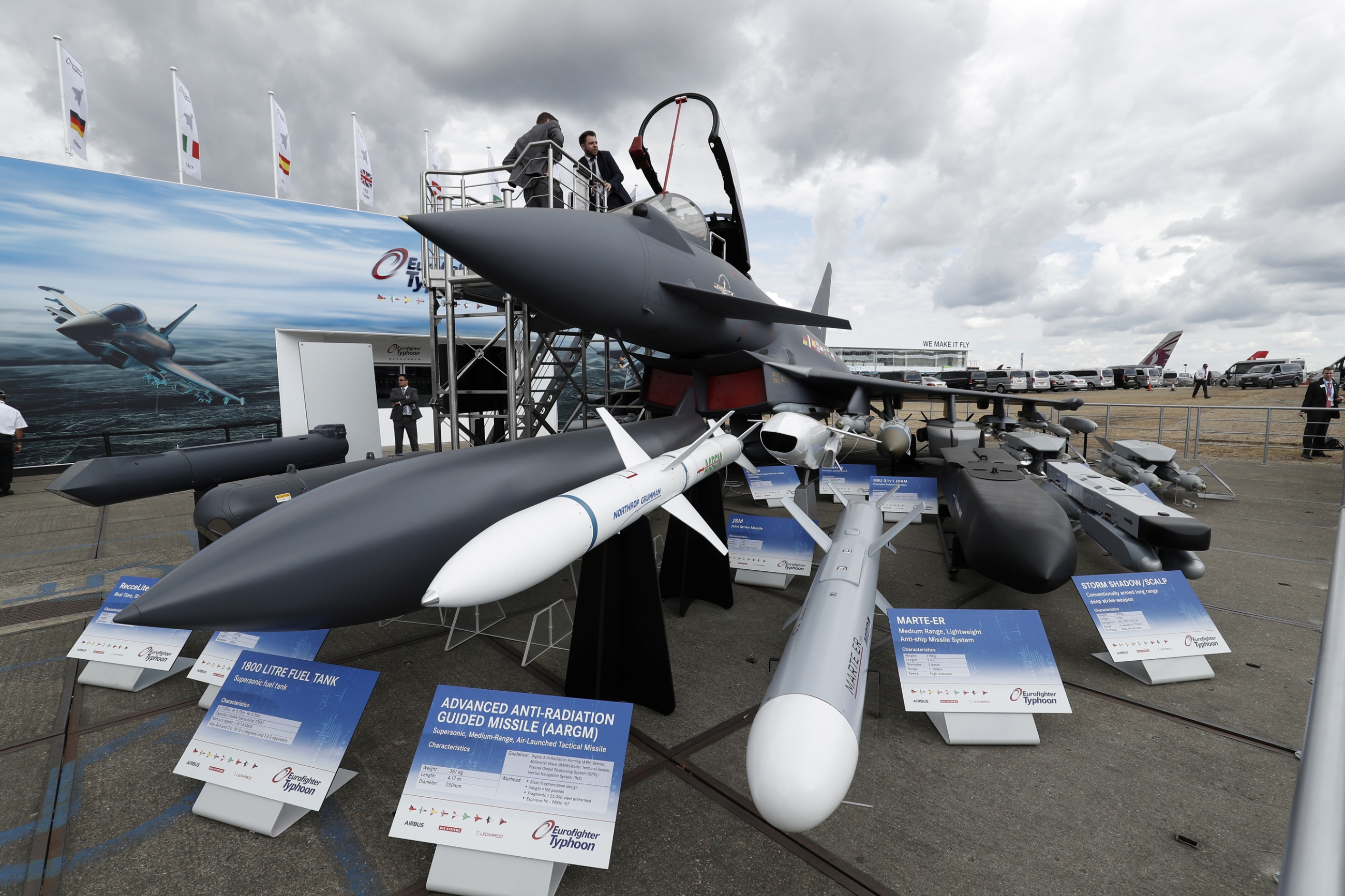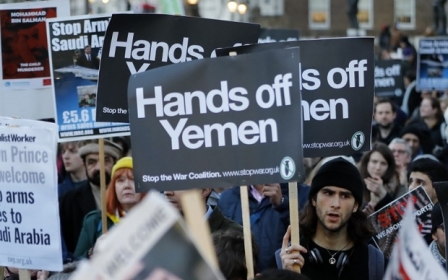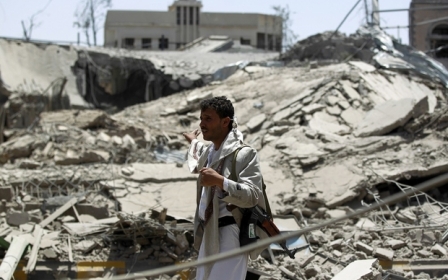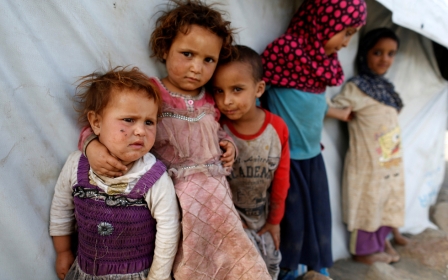Germany resists UK pressure to ease freeze on Riyadh arms exports

Germany does not plan to lift its freeze on weapons exports to Saudi Arabia, despite pressure from the United Kingdom, the German government said.
Germany barred future arms export licenses to Saudi Arabia in November, weeks after journalist Jamal Khashoggi, a Saudi government critic, was murdered at the country's Istanbul consulate.
On Wednesday, a spokeswoman for Germany's ministry of economy said Berlin did not plan to lift the ban.
"The view of the government is clear and there is no new situation. There is at the moment no basis for further approvals," said the spokeswoman, as reported by Reuters.
New MEE newsletter: Jerusalem Dispatch
Sign up to get the latest insights and analysis on Israel-Palestine, alongside Turkey Unpacked and other MEE newsletters
The comments come amid increased pressure from the UK, which recently said the ban has made it impossible to fulfil several defence contracts with Riyadh, such as the delivery of several types of warplanes that include components built in Germany.
UK Foreign Minister Jeremy Hunt sent a letter to his German counterpart urging Berlin to soften its line, Der Spiegel reported on Tuesday.
A day later, after a meeting with Hunt in Berlin, German Foreign Minister Heiko Maas said the country's decisions on arms shipments to Saudi Arabia were tied to the conflict in Yemen, Reuters said.
"We are not delivering any weapons to Saudi Arabia at the moment and we will make future decisions depending on how the Yemen conflict develops and whether what has been agreed in the peace talks in Stockholm is being implemented," Maas said, as reported by the news agency.
German Finance Minister Olaf Scholz, in separate remarks, said the government reviews its decision regularly "and then we make new decisions on that basis".
UK has 'grave concerns'
Germany accounts for just under two percent of all Saudi arms imports, a small percentage compared with the United States and Britain.
Still, Berlin makes components for other countries' export contracts, including a proposed $13bn deal for Riyadh to buy 48 new Eurofighter Typhoon fighter jets from the UK.
In his letter to the German foreign minister, Hunt said he had "grave concerns" about the impact Germany's arms freeze was "having on the supply chains of UK and European defence industry and may ultimately have on Europe's ability to fulfil its NATO commitments".
The decision is delaying deliveries of Eurofighter Typhoon, Tornado and Hawk warplanes, and could result in contractual penalties for 500 companies in the supply chain of Britain's BAE Systems, he said.
Referring to the conflict in Yemen, Hunt also said he was deeply concerned that the weapons export freeze would dent the ability to influence key figures in coming months in the cause of peace.
Pressure on Riyadh
Germany is not the only country to have suspended future arms sales to Saudi Arabia amid global outrage over Khashoggi's murder and the devastating humanitarian situation in Yemen, where the Saudis are leading a coalition that aims to oust the country's Houthi rebels.
Norway and Denmark also announced last fall that they would halt future arms deals with Riyadh.
Other major European countries, despite pressure from their respective citizens to do the same, have maintained business as usual with the Saudi government - and so, too, has the US under the administration of President Donald Trump.
Trump's continued defence of Saudi leaders, including the country's powerful crown prince, Mohammed bin Salman, who has been accused of ordering Khashoggi's murder, has pushed several top US lawmakers to call for Washington to reevaluate its relationship with the country.
It has also put US support for Saudi Arabia in Yemen under closer scrutiny.
Earlier this month, the US House of Representatives passed a resolution seeking to end US involvement in the war in Yemen, which has killed tens of thousands of people and plunged the country into a devastating humanitarian crisis.
The US military provides intelligence and logistics support to Saudi-led forces, and up until recently, it was also assisting with mid-air refuelling of Saudi jets.
"This is their opportunity to send a message to the Saudis that their behavior on [Saudi journalist Jamal] Khashoggi and their flagrant disregard of human rights is not consistent with the American way of doing business and not in line with American values," US Congressman Ro Khanna told the New York Times when the motion was passed.
Middle East Eye delivers independent and unrivalled coverage and analysis of the Middle East, North Africa and beyond. To learn more about republishing this content and the associated fees, please fill out this form. More about MEE can be found here.




